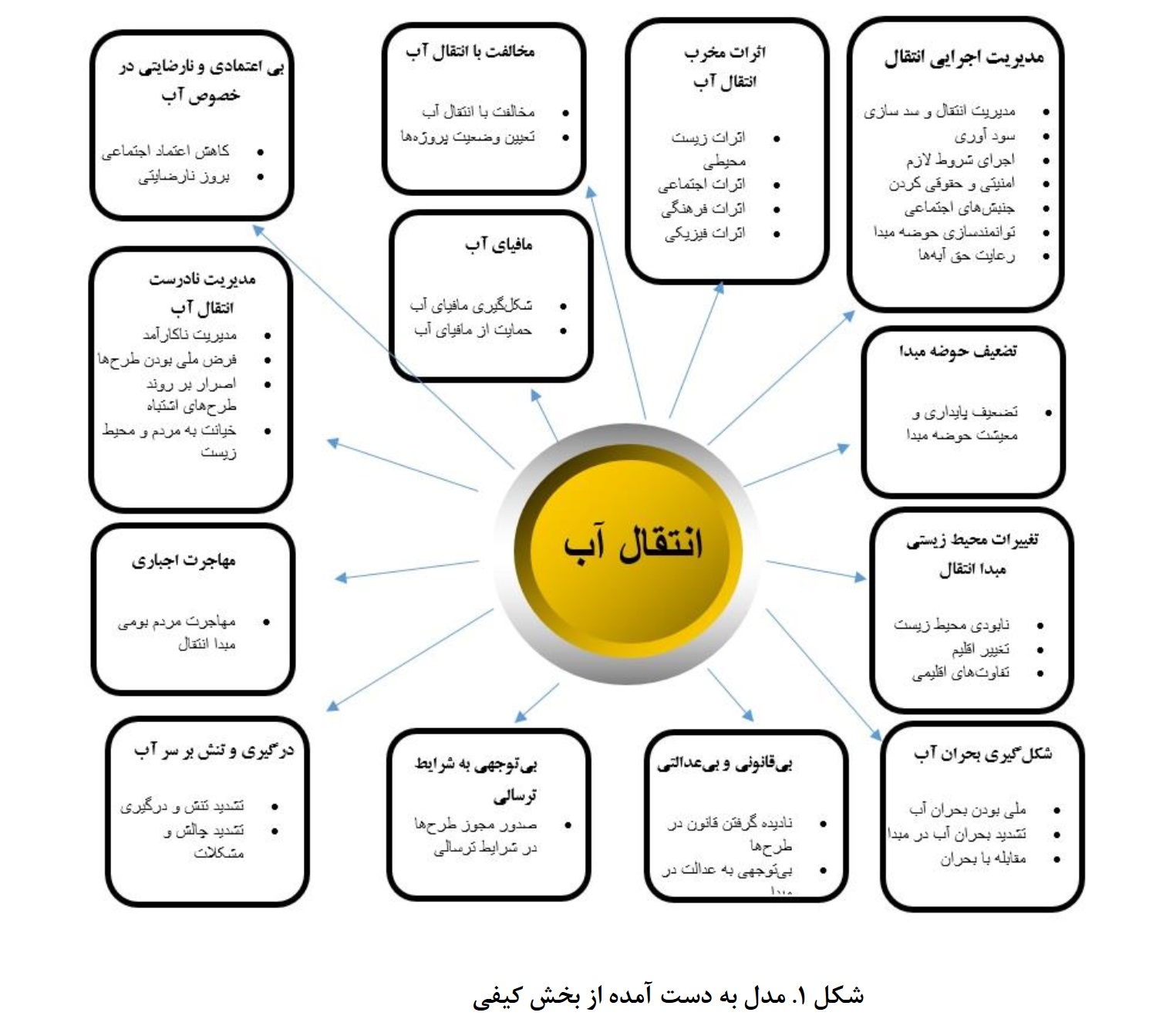Social Consequences of Water Development and Transfer Projects with Emphasis on the Concept of Justice (Case Study: Chaharmahal and Bakhtiari Province)
Keywords:
water transfer, social consequences, inequality, regional tension, social justiceAbstract
The issue of "water," due to its scarcity, determinacy, and uneven distribution across Iran's geography, has become a significant social subject. In recent decades, the proliferation and multiplicity of water-centric development projects, such as "inter-basin water transfer" projects defined and implemented based on the abundance of water in one area and its shortage in another, have lacked a precise and sensitive social perspective, turning these projects into focal points of various social issues. Despite legal requirements that all development projects, including those in the water sector, must undergo social and environmental impact assessments before implementation, a review of the history of these projects and the current situation of the host regions and provinces indicates that these assessments have either not been properly conducted or have been performed superficially. Consequently, these areas are now severely affected by the social consequences of the project's implementation. This research fundamentally aims to deeply study and identify the social impacts and consequences of water transfer projects after their implementation at the transfer origin, selecting Chaharmahal and Bakhtiari Province as the most contentious province in the country regarding water transfer for its statistical population and research field. To utilize diverse and real data from the research field and achieve a broad and generalizable theoretical perspective on this subject, "Grounded Theory" has been chosen as the research method. This method's capabilities provide a wide range of quantitative and qualitative data for examination and analysis. Ultimately, the analysis of data obtained from documents, interviews, social media, articles, and surveys indicates the profound impacts of these projects in the implementation areas in terms of livelihood, inequality, social justice, citizenship, and other social indicators.
Downloads







